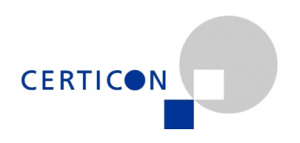Confident networking for career success
14.09.2016Company: Amcham
Short summary of the bestselling 'Confident Networking for Career Success' by Gael & Stuart Lindenfield (Little Brown Book Group 2010).
A business network is a web of relationships with the potential to be mutually helpful and mutually trusting. These relationships can appear very similar to social friendships, but there are some underlying differences because of their potential to become commercial in some form or other.
A misconception some people have about networking is that it is an underhand form of selling. It isn't. The best business and career networks provide both formal and informal opportunities to develop long-term social relationships between colleagues, clients, customers and competitors. They encourage the sharing of personal and work-related information, which will build trust and facilitate the successful exchanges of goods and services whenever such needs arise.
They also function as insurance against a ‘rainy day', when there will be someone who can advise and help you meet unwelcome challenges.
Self-confidence
Whatever kind of business networking you do, or intend to do, without question the more self-confidence you have the more successful you will be and the more you will enjoy the experience.
True self-confidence develops when you are repeatedly successful, while at the same time genuinely being ‘yourself'. Your successes can be large or small and your style of operating can be highly conspicuous or not. It can also involve great numbers of people or just a very few.
There are some characteristics and strengths that self-confident people share. Inwardly, they feel at ease with themselves, in spite of knowing they are not perfect. They know what they want and what they are capable of achieving, and believe they will meet with success.
You have probably noticed such people radiate positive energy. They appear calm, in control and approachable, and they communicate clearly and openly. They also directly ask for what they want and will, unhesitatingly and effectively, both promote and defend themselves whenever they choose to do so.
Some confident networkers will have been lucky enough to have acquired these characteristics naturally, but others - such as the shy business tycoon and self-promoter par excellence, Richard Branson - had to learn how to be socially confident.
Becoming confident enough to network well may be harder for some than others, but it is never impossible for anyone and we believe there are three areas of strengths that can be worked on:
- First, boost the inner confidence-maintaining personality characteristics - the Cool Cat qualities - that confident networkers share.
- Secondly, there are certain social skills that confident networkers use. We refer to these as Buzzy Bee skills.
- Finally, confident networkers have developed extensive knowledge on how to strategically manage their networks and operate efficiently. We call this Wise Owl know-how.
Cool Cat qualities
The first, and perhaps most important, of the Cool Cat qualities is Self-belief.
Self-belief is as the heart of inner confidence and without it, our primitive urge to survive and thrive is weaker. If you network while your self-belief is shaky, you could be undermining the potential of all your strengths, skills and achievements by:
- Playing too safe - You will probably either narrow your field of vision to people you already know, or, to avoid getting rejected, you might stick to talking to the small minority who are so nice that they wouldn't even give a brush-off to a fly sitting on their nose.
- Selling yourself short - You may hold back on sharing some of your strengths and achievements, because you have lost faith in your ability to live up to these past standards. Or, you may do so because you fear you will be judged as arrogant.
- Displaying poor social skills of outer confidence, which are so crucial for interacting with people and building good relationships.
- Failing to ‘Seize the moment' - In a fast-paced world, we often have only fleeting moments to make a connection. If you waste time sweating about whether or not an interesting new lead or famous VIP will want to talk to you, a Cooler Cat will almost certainly seize your opportunity.
How to develop your self-belief
Unlike many of the other components of self-confidence, the vast majority of us once had very good self-belief. Certainly new-born babies don't doubt their right to be noticed, liked and have their needs met. Unfortunately, once past infancy, most people's self-belief takes a rocky path. It is knocked by failures, criticism, rejection and identity crises.
As a good networker, your main focus should be on what others might need from you, rather than on what you want or need to sell. So you must display and highlight yourself in a way that is most likely to make you and what you have to offer relevant and, therefore, appealing to the other person.
Unique Appeal Points
To help you do this we have developed the concept of Unique Appeal Points (UAPs), which are a variation on the well-known acronym USPs and cover four key areas of strengths:
- Innate aptitudes: these are those enduring, personality-defining qualities that usually predetermine major areas of contribution in your career. For example, you need to be clear about whether you are a natural extrovert, an introvert or somewhere in between.
- Developed character strengths: these are the strengths you've developed as a result of your life experiences and could be, for example: patience, resourcefulness, consistency or, of course, self-confidence.
- Technical skills or knowledge: these are your learned competencies, and areas of specialist knowledge to which you can legitimately claim as areas of special expertise.
- People skills: particularly those which are critical to networking, such as responsiveness, insight, co-operation.
Once you have identified your UAPs, you need to create an abundance of opportunities to display and share them. Confident Networkers often seize fleeting opportunities that others may not ever even notice.
For instance, if you were standing in an airport queue and spotted the man next to you was reading an article on a topic that was of great interest to you, would you politely try to initiate a conversation? Let's imagine you would, and that during your five minutes of small talk it emerges that this man works for a company that has just the kind of opportunities you are looking for. But then, unfortunately, you also learn that he has a different destination from you.
How well would you use the five minutes you have left of this lucky break? Would your new contact board his plane, knowing about your interest and also have an accurate impression of what you as an individual might be able to offer him?
A good networker has to be able to accurately convey their UAPs to a new contact in just one minute. That may sound like a tall order, but it is not as impossible as it sounds and only requires preparation and practice.
Recovery plan
Our final tip for self-belief is to prepare a plan for recovering from the inevitable knock-backs you will get while you are networking. Accept that you are certain to encounter some rudeness and rejection, but instead of panicking about this reality note down the 5 steps of this emotional recovery plan and keep them at hand as a guide:
1. Calm your pulse
You can achieve this by, for example:
- retreating to somewhere private and doing some controlled breathing and stretching exercises
- visualising a peaceful place, or the face of someone you love
- going for a quiet walk around the block
- listening to a calming CD or, humming a peaceful and rhythmic melody
2. Boost your self-esteem
You can do this by doing any or all of the following:
- give (or plan to give) yourself a treat, such as a break and some favourite food, or buy yourself a small luxury
- look at some reminders of past achievements
- immerse yourself in an activity that you enjoy and will guarantee a satisfying result
- ring a friend whom you know will love to hear from you
- do a favour for a colleague, friend or neighbour
- make a donation of time or money to a charity
Or,
- look through your networking contacts and find two people who might benefit from being introduced to each other.
3. Analyse the facts
Summarise what exactly happened using objective, third-person language, being careful not to use any superlatives, generalisations and exaggerations. Then, talk through your analysis with an empathic and level-headed colleague, boss or mentor.
4. Reflect on your learning
Note what the experience of your knock-back has helped you learn about yourself, other people, communication, the type of event or networking in general
5. Make at least one resolution to:
- script and rehearse an assertive response to use at your next meeting
- write a letter of complaint
- apologise or make recompense
- enlist on a training course to improve a skill
- try an alternative networking scenario
Confident networking is not as difficult as it may first appear. You just need to know what to do, when to do it and have the courage to test out the strategies and tips step by step. Trust that one day it will suddenly ‘click into place' and start to feel natural and so easy – just like it does to those super-confident people you used to admire so much.
Want to know how good you are at networking? Try our networking effectiveness self-assessment questionnaire »
Tags: Human Resources |







